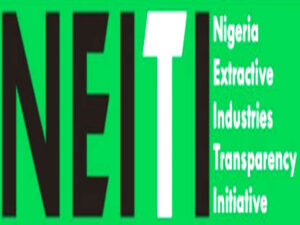AFTER three decades of stagnation, Nigeria remains undecided on how to revive its public refineries. The president of the Dangote Group, Aliko Dangote, has reignited public debate about the state-owned assets located in Port Harcourt, Warri, and Kaduna, arguing that they might never operate effectively again. His position seems harsh, but it is a sound and realistic assessment. Therefore, the most pragmatic course of action is to privatise these refineries.
Hosting members of the Global CEO Africa, who visited the Dangote Petroleum Refinery on July 10, Dangote pointed out that despite the $18 billion ($20 billion by other estimations) invested in the rehabilitation of these refineries, “they are still not working. And I don’t think, and I doubt very much if they will work.”
He likened the maintenance of the refineries to “trying to modernise a car that was built 40 years ago, when technology and everything had changed”. He added, “Even if you change the engine, the body will not be able to take the shock of that new technology engine.” This analogy sadly captures the reality.
On cue, the Group Chief Executive Officer of the Nigerian National Petroleum Company Limited, Bayo Ojulari, told Bloomberg the following day that the corporation has started reviewing its refinery strategies.
“But also, as you know, when you are refining a very old refinery that has been abandoned for some time, what we are finding is that it’s becoming a little bit more complicated. Sale is not out of the question,” he said, signalling openness to privatisation.
The PUNCH maintains that unbundling these refineries from the NNPC and transferring ownership to private hands is overdue.
Indeed, there was a ray of hope in 2007, but it was soon extinguished. Towards the end of former President Olusegun Obasanjo’s second term in 2007, his administration sold a 51 per cent stake in the Port Harcourt and Kaduna refineries for $561 million, with the Bluestar Consortium paying $300 million upfront.
Unwisely, upon assuming office later that year, Obasanjo’s successor, Umaru Yar’Adua, annulled the transaction.
Ironically, the 650,000-barrel-per-day Dangote Refinery, which cost about the same as what Nigeria spent on the failing public refineries, was constructed after Yar’Adua reversed the sales to Dangote. The Dangote Refinery’s capacity surpasses the combined nameplate capacity of the rusted NNPC facilities by 46 per cent, underscoring the gap in efficiency and modernity.
Since the reversal, the two refineries have produced almost nothing for over 17 years until November last year, when the NNPC said it had restarted the old Port Harcourt Refinery.
Even then, NNPC has demonstrated its inability to manage these assets sustainably.
Therefore, the reasonable solution is for the refineries to be privatised. Private sector expertise can bring in modern management practices and technical know-how. Under private ownership, the refineries are more likely to be run profitably, with better maintenance and less downtime.
Unlike the past, even petroleum marketers have started supporting the privatisation of the refineries with a nameplate of 445,000 bpd.
Also, selling them would stop the financial haemorrhage and redirect funds to more productive sectors like healthcare or education.
Public refineries in Nigeria have long been plagued by political interference, nepotism, inflated contracts, and outright corruption. Transferring control to private investors can curb these problems and encourage a competitive environment.
Many countries have moved towards private ownership of refineries, allowing governments to focus on regulation rather than operations. The United States, as of 2024, had about 125 operating oil refineries, which are all privately owned.
The United Kingdom, Canada, India, Germany, South Korea, Japan, the Netherlands, Singapore, all have privately owned and fully functional refineries. Nigeria should borrow a leaf from the book of these countries.
Selling the refineries would attract domestic and foreign investment, enabling modernisation and expansion that could boost the economy significantly. Privatised refineries would create stable employment opportunities, stimulate growth in downstream industries, and strengthen the petroleum value chain.





